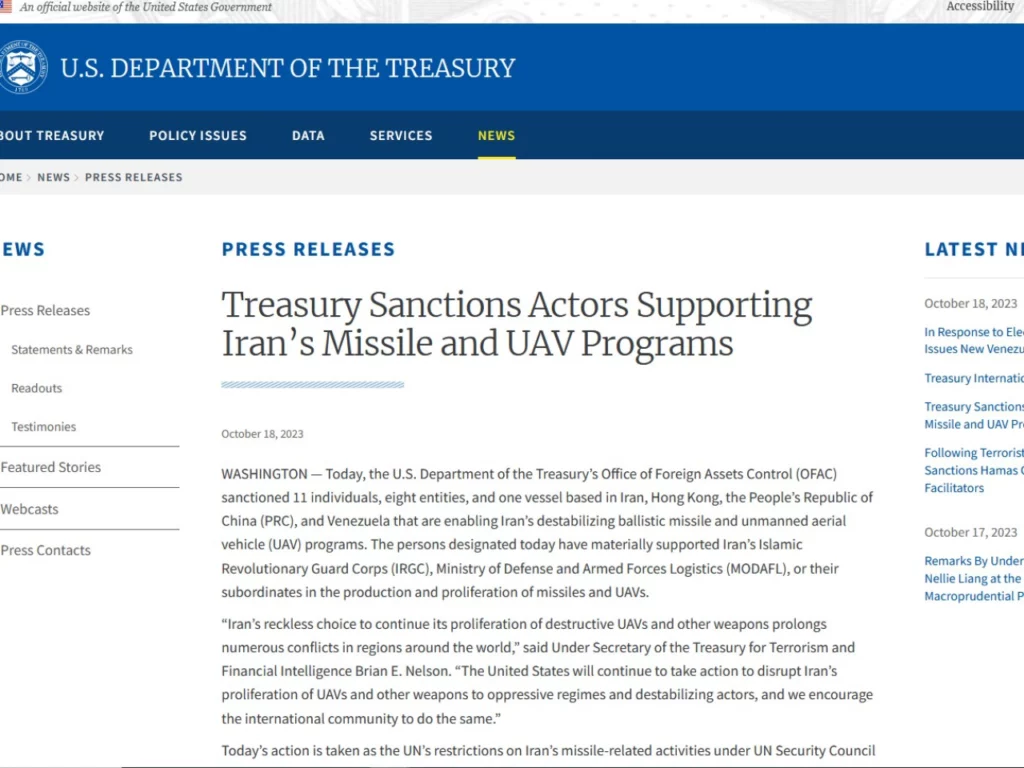The sanctions target actors based in Iran, Hong Kong, China and Venezuela, the US Treasury Department said.
“Iran’s reckless choice to continue its proliferation of destructive UAVs (unmanned aerial vehicles) and other weapons prolongs numerous conflicts in regions around the world,” said Brian Nelson, Treasury under secretary for terrorism and financial intelligence, in a statement.
The announcement came as EU officials on Wednesday also said the bloc would maintain sanctions on Iran beyond the deadline of a landmark nuclear deal.
The deal agreed with world powers in 2015 was aimed at curbing Iran’s nuclear program in exchange for the lifting of international sanctions.
The decision to keep the sanctions in place was originally announced by Britain, France, and Germany, all signatories to the pact, last month.
The Treasury Department said on Wednesday that it was sanctioning 11 individuals, eight entities and one vessel.
The people targeted have “materially supported” Iran in the production and proliferation of missiles and drones, the Treasury added.
The action was taken jointly with the State Department, which is designating eight individuals and entities.
Along with the landmark Iran nuclear deal, the UN Security Council passed a resolution in 2015 requiring certain international restrictions, but those expired on Wednesday.
The resolution was based on an assumption that Iran would move to restore confidence in the peaceful nature of its nuclear program.
“This has not happened,” said a joint statement by the United States and 46 other Proliferation Security Initiative-endorsing states.
“In this context, it is imperative that all States continue to take steps to counter Iran’s destabilizing ballistic missile-related activities,” the statement said.
– ‘Destabilizing impacts’ –
Secretary of State Antony Blinken said Wednesday that Washington reaffirmed its “commitment to utilize every tool at our disposal to counter Iran’s development, procurement, and proliferation of missiles, UAVs, and other dangerous weapons.”
He added that the United States and its partners will continue raising concerns at the United Nations and “demand that Iran be held accountable for the destabilizing impacts of its proliferation.”
The latest round of Treasury sanctions targeted businesses like Iran-based Fanavaran Sanat Ertebatat Company, which makes jam-resistant guidance systems, its directors, as well as Saberin Kish Company for supporting Iran’s Islamic Revolutionary Guard Corps.
Others who helped procure components, such as China-based Lin Jinghe and his Hong Kong-based company Nanxigu Technology Co, were also named.
Sarmad Electronic Sepahan Company, which made components identified in drones downed by Ukrainian forces, was designated too, alongside weapons proliferation networks led by Emily Liu and others.
The sanctions restrict US firms and individuals from certain transactions with blocked entities.



